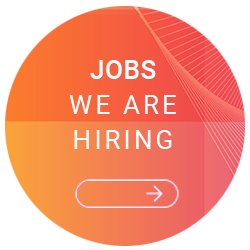Last Updated on 28. March 2025
The modernization of specialist processes in public administration is essential in order to successfully meet the requirements of digital transformation. Increasing digitalization, demographic change and the need for new operating models to relieve the burden on specialist resources all require outdated processes to be rethought and redesigned. This involves more than just replacing old IT systems. Increased demands on the operation of specialist procedures and the flexible mapping of administrative processes increase the complexity of the modernization process and entail far-reaching organizational and cultural changes.
As part of the “Berlin Administration Innovation Forum” on 18.09.2024, Sebastian Schmutzler, Syncwork AG and Marco Lawrenz, mgm consulting partners discussed the experiences from successful projects in the Berlin state administration for the modernization of specialist procedures. Based on the requirements analysis, further development and integration of specialist procedures, the factors for a successful approach were explained.
The need for modernization
Several factors are driving the modernization of specialist processes in the administration. Synergies for the financing of IT systems are a key driver with rising costs. Demographic change and the associated shortage of skilled workers present the administration with the problem of increasingly automating routine tasks. At the same time, administrative tasks are growing without more resources being available. Old processes and infrastructures, often in their second or third wave of modernization, can no longer meet the demands of growing complexity.
Digitalization as a driver of modernization
Digitalization is having a significant impact on the expectations of citizens, who prefer uncomplicated, fast and digital access to administrative services. At the same time, cyber security is becoming increasingly important, which is also leading to the decision for new operating models and the need for expert knowledge. Outdated IT infrastructures pose a considerable risk here, as they often no longer meet modern security standards. Another aspect is the increasing complexity of legal requirements, which require procedures to be made more flexible and adaptable.
Cooperation between administration and external consultants
Cooperation between the administration and external consultants plays a central role in the modernization of specialist processes. The expertise of the administrative staff lies in their knowledge of the technical requirements, while external consultants contribute methodological know-how for the implementation of modern IT solutions. It is crucial to clarify the expectations of all parties involved so that misunderstandings do not jeopardize the success of the project. A clearly defined understanding of roles and regular communication help to avoid such stumbling blocks. Specialized consultants for public administrations offer a comprehensive range of services, starting with support in the approval of financial resources, advice on budget preparation and the subsequent formulation of tenders.
A key success factor is the involvement of end users, both administrative staff and citizens, in the design of the new processes. The external consultants help to identify the requirements of the end users and translate them into technical solutions without losing sight of the technical needs.
Project management in modernization
Project management plays a crucial role in modernization. Framework conditions, such as the Berlin project manual, require adaptation to the project reality and the desire for agile collaboration. Many administrations want agility, but often underestimate the effort involved. A more flexible approach that introduces a proxy product owner, for example, can help to adapt the agile principles to the specific framework conditions of the administration.
Thinking in platforms
The necessary merging of small, distributed specialist processes requires a completely new approach to modernization. The creation of platforms to increase efficiency, simplify the operating model and reuse require a transformation of the thinking model, which can be successfully established through external consulting.
Practical examples and lessons learned
Practice shows that an iterative approach is often successful. Old processes must be continuously scrutinized and replaced by more efficient solutions if necessary. Tools such as JIRA or Confluence help to professionalize the requirements process and make projects transparent. Detailed requirements documentation, which is in the hands of the commissioning administration and is continuously updated, is crucial in order to avoid misunderstandings and make progress visible to all those involved.
Another practical finding is to take a close look at legacy processes. There is often an opportunity to consolidate several small procedures and combine them into one platform, which increases efficiency and reduces the burden on the administration.
Modernization as the key to future-proof administration
The modernization of specialist procedures is not an end in itself, but an urgent necessity in order to meet the increasing demands on the administration. Clear political support, a clear understanding of roles and the use of modern tools are decisive factors for success. This is the only way to sustainably digitalize the administration while ensuring that it meets the expectations of all requirement groups and citizens in particular. The challenge is to master the balancing act between technical modernization and professional requirements towards platforms without underestimating the complexity.







